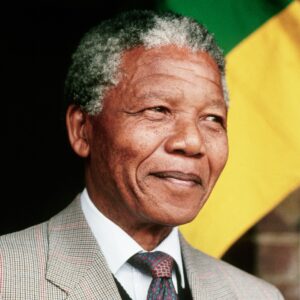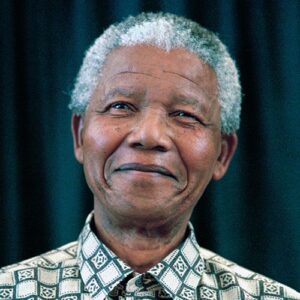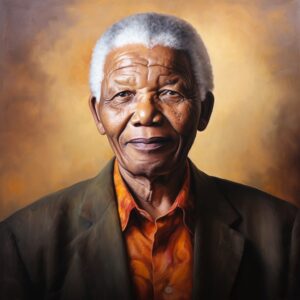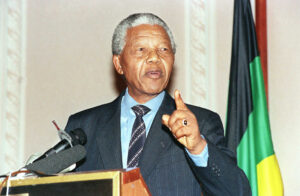- abaashishb7
- February 27, 2024
- 11:11 am
NELSON MANDELA
A REVOLUTIONARY LEADER AND CHAMPION OF EQUALITY (1918-2013)
NELSON MANDELA
Nelson Mandela, whose name has become synonymous with the struggle for equality
and justice, was born on July 18, 1918, in the village of Mvezo in South Africa. His
journey from a small rural village to becoming the first black president of South Africa
is a testament to his unwavering commitment to the ideals of freedom and equality.
Mandela’s early years were marked by the injustices of apartheid, a system of
institutionalized racial segregation and discrimination. Despite facing enormous
obstacles, he pursued an education, eventually studying law at the University of Fort
Hare and the University of Witwatersrand. It was during this time that he became
involved in anti-colonial politics and joined the African National Congress (ANC), a
political party dedicated to ending apartheid.
Facebook NELSON MANDELA
His activism against apartheid led to his arrest multiple times, and in 1964, Mandela
was sentenced to life imprisonment for his involvement in anti-government activities.
He spent 27 years behind bars, during which the world rallied behind him, making
“Free Nelson Mandela” a rallying cry for justice.
Even in prison, Mandela remained steadfast in his principles, rejecting offers for release
in exchange for compromising his beliefs. His imprisonment only served to galvanize
the international community’s support for the anti-apartheid movement.
Finally, on February 11, 1990, after immense pressure both within South Africa and
internationally, Mandela walked out of prison a free man. His release marked the
beginning of a new era for South Africa, one of hope and reconciliation.
Mandela’s path from prisoner to president was remarkable. In 1994, he was elected as
the first black president of South Africa in the country’s first fully representative
democratic election. Mandela’s presidency was marked by his efforts to heal the
wounds of apartheid and build a more inclusive nation. He established the Truth and
Reconciliation Commission, which aimed to uncover the truth about past human rights
abuses and promote healing and forgiveness.
Throughout his life, Mandela preached the importance of forgiveness and
reconciliation. Despite the injustices he faced, he chose the path of peace and
understanding. His leadership and vision helped South Africa transition from a divided
nation to one united in its diversity.
Nelson Mandela’s legacy extends far beyond the borders of South Africa. He is
remembered as a global icon for peace and justice, receiving numerous awards,
including the Nobel Peace Prize in 1993. Mandela’s life serves as a reminder of the
power of perseverance, courage, and the unwavering commitment to justice.
As we reflect on Mandela’s life and legacy, let us be inspired by his words: “It always
seems impossible until it’s done.” In a world still grappling with issues of inequality and
injustice, Mandela’s example continues to guide us towards a future built on
compassion, understanding, and equality for all.
Facebook NELSON MANDELA
Let us honor Nelson Mandela’s memory by carrying forward his legacy of courage,
leadership, and the belief in a better world for all.
NELSON MANDELA





